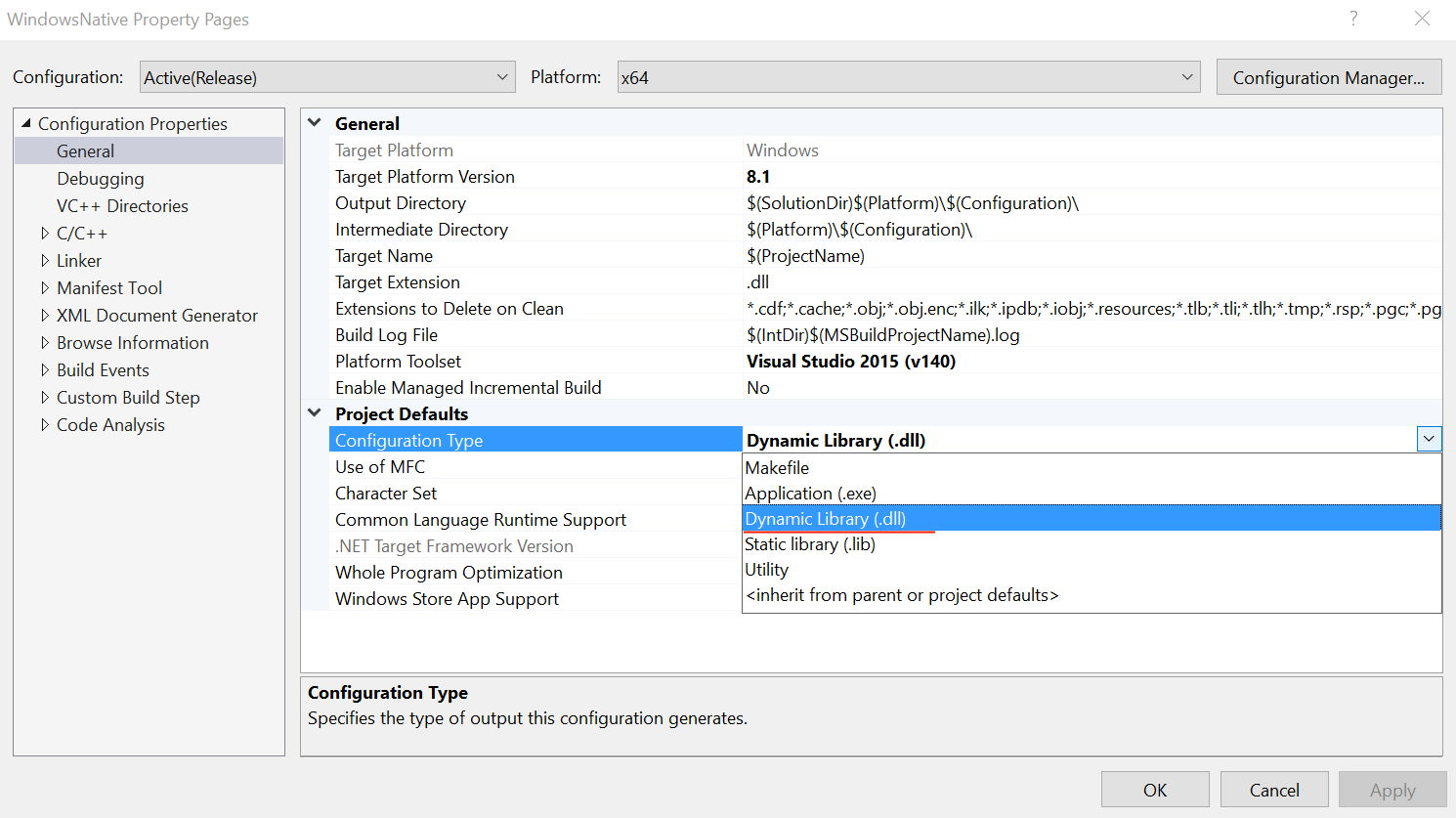Calling A Dll From C Program
I need to break a library of functions into a number of separate dlls. How do I call a dll from within a dll? Can I do it within the same solution? Do I need to specify a library for the linker? Current attempt:!DEC$ ATTRIBUTES DLLEXPORT::GTrend!DEC$ ATTRIBUTES ALIAS:'GTrend':: GTrend!DEC$ ATTRIBUTES DLLIMPORT, ALIAS: 'GFilter'::GFilter ( blah, blah, blah) Call GFilter(pdlen, lg, psh, lnc, tmp1) gives the error GTrend.obj: error LNK2019: unresolved external symbol impGFilter referenced in function GTrend 2Debug GTrend.dll: fatal error LNK1120: 1 unresolved externals The GFilter function compiles and works great.( Tested by calling with netlink in mathematica) GFilter and GTrend are in different projects under the same solution. Thanks Frank. Thanks for the help.
I decided to try David's method first as it looks like it could be useful in the future. The current problem is that.net can't find the dll. The error message is ' A.NET exception occurred: System.AccessViolationException: Attempted to read or write protected memory. This is often an indication that other memory is corrupt. At Wolfram.NETLink.DynamicDLLNamespace.DLLWrapper1.GTrend(Int32&, Double, Double ).'
Calling A Dll From Python
- I am trying to use a C++ dll in my C# application but unsuccessul. Here is what I have done: 1. The C++ code was developed using open BSD. I made a C++ CLR dll.
- Hi All, I am trying to call third party dll from C program. This third party dll is written in C.
Has anyone worked on calling a C# module from C module. What do you need to do in the c project to load the c# (dll?). Programming Puzzles & Code Golf.

Give More Feedback
I don't think the error is in the way I am call the dll. So what am I doing in this code that prevents it from being called? Subroutine GTrend(pdlen, pdata, acc) use kernel32!
FrankM wrote. The current problem is that.net can't find the dll. The error message is ' A.NET exception occurred: System.AccessViolationException: Attempted to read or write protected memory. This is often an indication that other memory is corrupt. At Wolfram.NETLink.DynamicDLLNamespace.DLLWrapper1.GTrend(Int32&, Double, Double ).' I don't think the error is in the way I am call the dll.

So what am I doing in this code that prevents it from being called? Can you show the relevant sections of your.NET code i.e., where you prototype the GTrend procedure and where you call it? Why do say, 'The current problem is that.net can't find the dll'? Have you confirmed you're getting a zero value for the dllhandle in GTrend? If you think the execution is making it ok to Gtrend and something is amiss therein, then here're some suggestions:.
Following your call to LoadLibrary procedure, you should check for the dllhandle return value and only proceed if it is not zero. If it is zero, then it is confirmation the DLL was not found or it could not be loaded. For the 'not found' situation, check your PATH and ensure the DLL is indeed present in the path.
For the 'could not loaded' possibility, run your DLL through a dependency check utility such as DependencyWalker and see what other DLLs are required by the one in question and whether they are all available on the path. If dllhandle is non-zero (usually greater than zero), then check pGFilter return value from GetProcAddress and again only proceed to the next step if it is not zero. If it is zero, then check whether the GFilter procedure is exported correctly from the DLL.
The interface to GFilter in your Fortran example and that in your Mathematica example are inconsistent. In Mathematica you are forcing it to use a 32-bit dll (via ReinstallNET) where STDCALL is kind of an oddball calling convention which happens to be the default and then using this default in DefineDLLFunction.
Your Fortran example doesn't specify a calling convention so unless a command-line switch is applied it won't be using STDCALL. I have modified my example so it will refuse to compile in 64-bit mode and set up subroutine GTrend and its interface in program P so that the STDCALL calling convention will be used. Output when compiled with 32-bit ifort was similar to that seen in Quote #5. After including a console in GTrend and adding write statements, windows cannot find GFilter.dll with the complete path specified.!works dllhandle = LoadLibrary (lpLibFileName='C: Users FrankM Documents Visual Studio 2012 Projects GTrend GTrend Debug GFilter.dll'//CNULLCHAR)!Fails dllhandle = LoadLibrary (lpLibFileName='GFilter.dll'//CNULLCHAR) Is there an elegant solution beyond hard code? In other news, Mathematica NetLink was not able to find GTrend with Attribute set to StdCall or C. It likes the default unspecified C in 32bit. Once again, big thank you to everyone for all the help, especially Repeat Offender for the samples.
FrankM wrote: After including a console in GTrend and adding write statements, windows cannot find GFilter.dll with the complete path specified.!works dllhandle = LoadLibrary (lpLibFileName='C: Users FrankM Documents Visual Studio 2012 Projects GTrend GTrend Debug GFilter.dll'//CNULLCHAR)!Fails dllhandle = LoadLibrary (lpLibFileName='GFilter.dll'//CNULLCHAR) Is there an elegant solution beyond hard code?. See for how Windows locates DLLs. If there is a particular folder in Mathematica for 'user' DLLs where you can place GFilter.dll? Or can you create a new folder for your DLLs and add it your PATH environment?